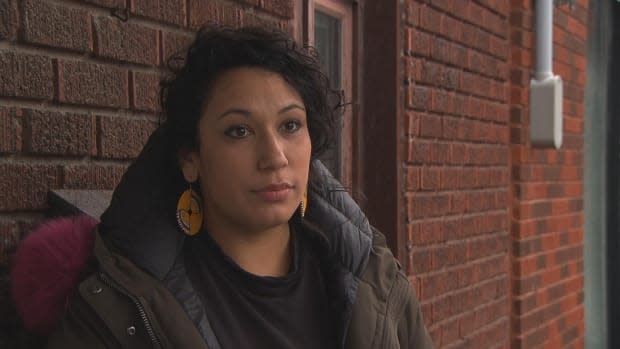Quebec should create new role of director of youth protection, Laurent commission finds
Quebec's Special Commission on the Rights of the Child and Youth Protection released some preliminary findings Monday, citing a laundry list of problems within the provincial system and recommending the creation of a leadership position to oversee sweeping changes.
Originally, the commission was supposed to publish its report and recommendations today, but the deadline has been pushed back to April 30.
Régine Laurent, the commission's president, said that considering the thousands of testimonies, they need more time to analyze and develop solutions.
However, in the meantime, Laurent said the government should immediately create the role of provincial director of youth protection, describing it as a "guardian angel/guard dog" position.
While youth protection is run by regional health authorities, Laurent said there is a leadership problem that needs to be fixed in time for the commission's full list of recommendations.
She specified that the director role would be more than managerial: it would create a leader to implement best practices and provide direction and oversight.
Particularly, Laurent wants the director to ensure services are uniform across the province, for people living in different regions and for different languages and cultural groups.
During the news conference, Laurent provided a breakdown of the various problems identified in Quebec's youth protection system, known by its French acronym DPJ.
Laurent identified the need for more services for families in distress, saying that youth protection "should be a last resort, not an entry to services."
Commission vice-president André Lebon added that often children come into the youth protection system "too late, too disturbed."
"Every time there's a mess, we're looking at the DPJ. The DPJ has a formal responsibility for the child. But honestly what we see, if you look at what we heard, it's much more than just a DPJ mess, or responsibility," he said.
During interventions, Laurent said that DPJ services need to prioritize the needs of children, whose voices are often excluded from decision-making.
"The words of children need to be sought out, listened to, and protected."
Workers in the system are also in distress, Laurent said, as they struggle to meet the demands without sacrificing the quality of their work.
Laurent said that the DPJ system doesn't take into account the values and context of Indigenous families, and that Indigenous people are underrepresented in the workforce.
She said that the law on youth protection needs to be clarified, that the system's funding is inadequate, and that many kids who transition out of the system at 18 are largely abandoned by social services.
Until the commission's full report is released, Lebon says fixing the leadership problems within DPJ is the first step toward facilitating the changes they have identified.
"It would be so easy if it was only one region," said Lebon. "We would say, 'we should put some kind of special needs in that region.' In fact, it's quite the lack of global coherence. So we need someone to push on that."
Government intends to follow up
Following the announcement, Lionel Carmant, Quebec's junior minister for health and social services, said he was open to the suggestion.
"The well-being of every child is at the centre of our priorities. The creation of a provincial director of youth protection position is interesting and aligns with my own thinking. We intend to follow up quickly with the commission on this recommendation," he wrote in a statement.
"The work of the commission is of great importance, and the findings bear witness to the enormous work accomplished. I would also like to take this opportunity to thank all those who shared their experience and who made their voices heard. Everyone's willingness to change things in order to do better for our children is unmatched."

Advocate Marcelle Partouche Gutierrez told CBC she supports the idea, but wants any provincial director to be independent from the rest of the system.
"I think it's a good idea to create a position that focuses on specifically harmonizing services and making sure that there's a systemic approach," she said.
"It would be relevant to have a form of accountability that is outside a ministry."
She said someone who experienced the system from the inside as a youth in care would make a good candidate for the job, someone who brings "lived experience" to the table.
Overall, she said she was happy to see that the issues brought forward by advocates seem to have been heard by the commission.

